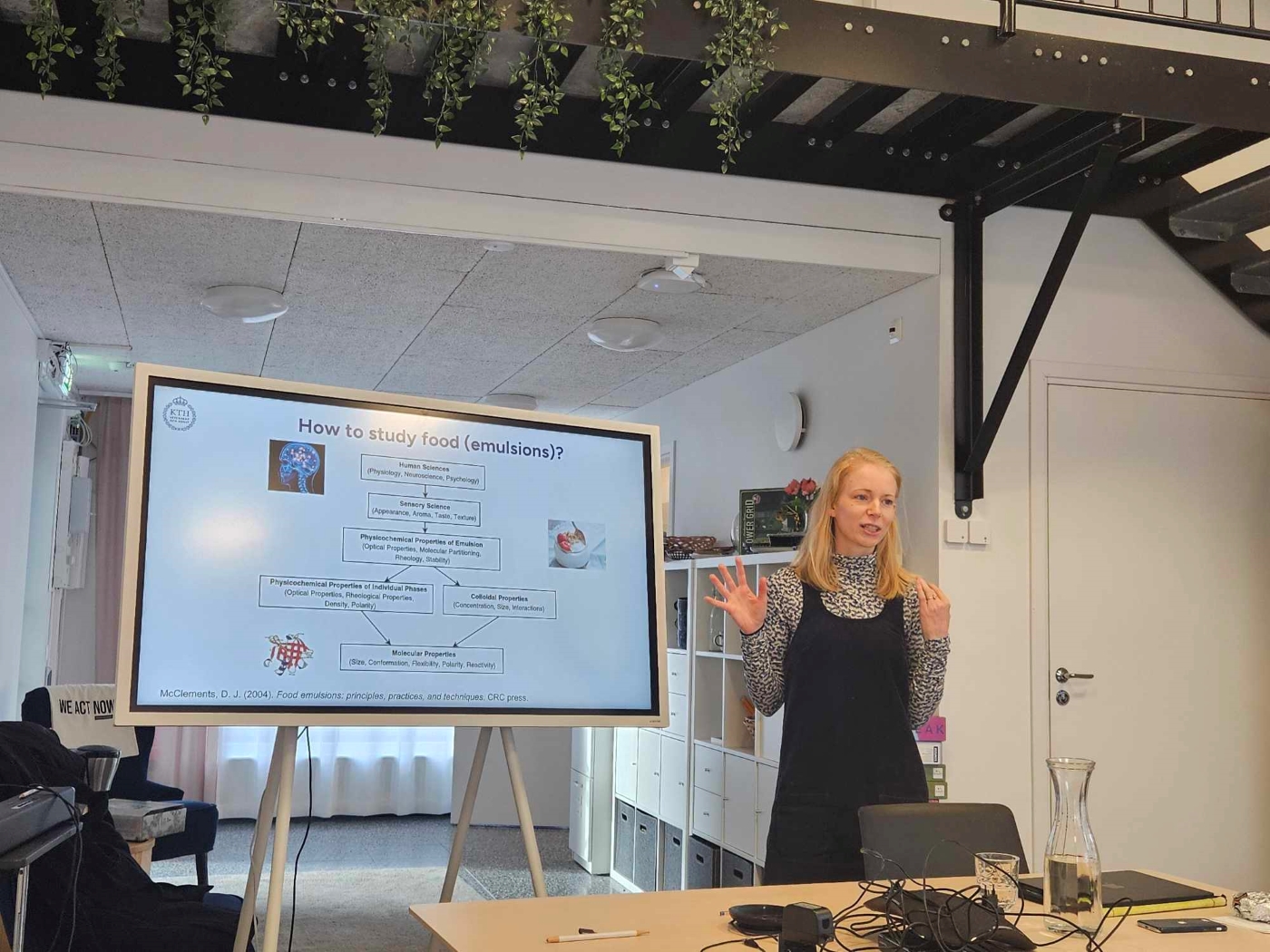Next Generation Foods: Maija Greis on Sensory Perception and Precision Fermentation

KTH FOOD’s newest addition, Dr. Maija Greis, introduced her research on sensory perception and precision fermentation during a lunch seminar on Tuesday, November 5th.
Perception and Acceptance of Traditional and Alternative Foods
Yogurt—a fermented gel-like emulsion—serves as an intriguing example of how we evaluate taste, texture, and smell. Greis pointed out the continued reliance on human sensory testing for evaluating food properties such as creaminess and sweetness. She also highlighted that, while taste and smell are well-researched, texture analysis lags behind. She discussed the unique composition of plant-based versus dairy yogurts, which differs not just in proteins and fats but in carbohydrates as welll. Her previous research examined how consumers perceive these products and varied the plant-to-dairy ratio in samples to study sensory changes. Her experiments with oat-based yogurts revealed that products with more dairy-like properties were preferred. This highlights the texture challenges in plant-based yogurts and the need for products that better mimic animal-derived foods. Precision fermentation could provide a solution for this.
Greis then introduced the audience to her current research on precision fermentation—a pressing field as the demand for sustainable protein sources rises. She noted that producing milk proteins through precision fermentation instead of traditional dairy farming could reduce agricultural greenhouse gas emissions by up to 97%. However, challenges persist, including low yields, cost issues, regulatory barriers, and consumer acceptance. She is currently working on mapping how protein composition impacts functionality and reviewing ways to enhance proteins through protein design and precision fermentation.
